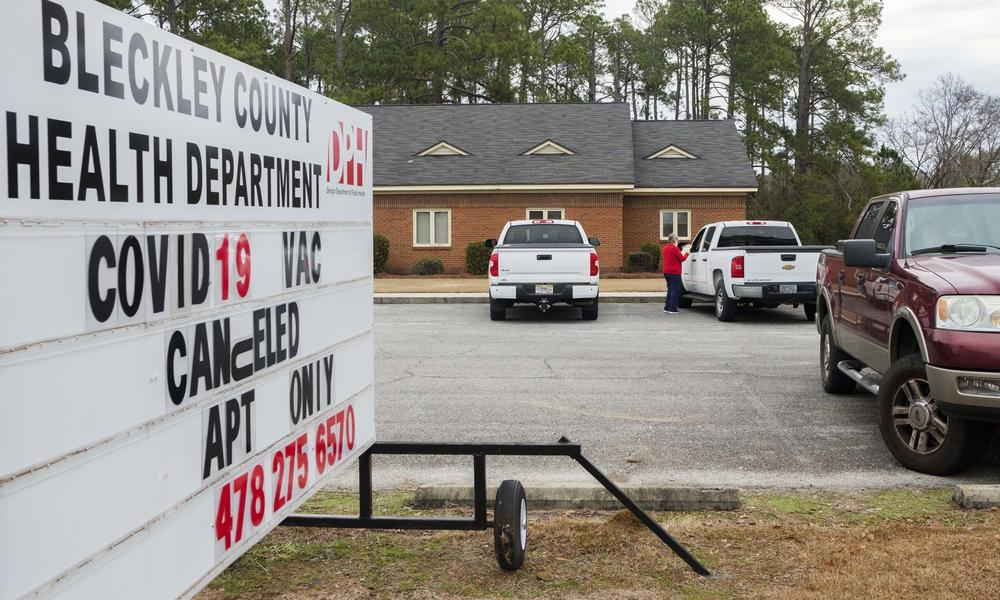
Caption
A sign at the Bleckley County Health Department on the first day of Phase 1a Plus vaccine access in Georgia alerts visitors of canceled appointments, illustrating the state's early struggles in its vaccination effort.
Credit: Grant Blankenship/GPB

